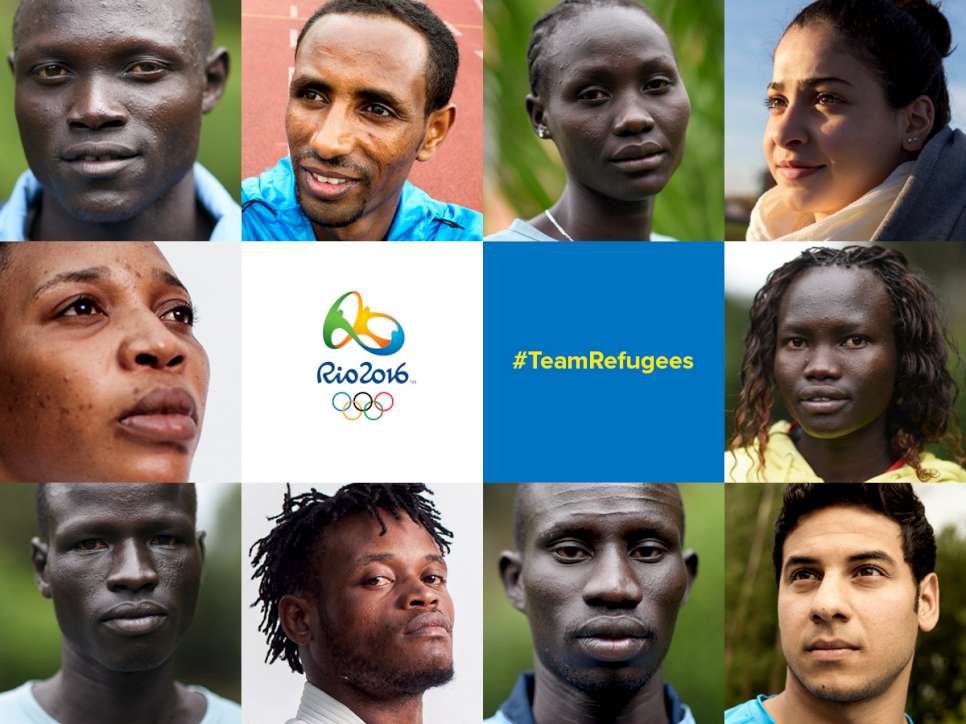Within the context of the developing world, most emigration happens from the Global South to the Global North. This is strongly correlated to a recent phenomenon called the “Brain Drain.” This phenomenon has particularly affected countries in the developing world as some of their best talent moves to the Global North rather than staying in their country of origin. In the midst of this, it is interesting to consider what states are doing with their emigration policies to combat this very issue. As the prominence of the “brain drain” is increasing, many countries in the developing world are taking into their own hands to manage and regulate migration rather than depending on international organizations. In further looking at these trends, Kenya provides a great case study as it is working to combat the brain drain in south-north movements by its efforts to create more of a brain gain through its reliance on the Kenya diaspora, the remittances that the diaspora brings in, and other institutional efforts to keep Kenyans in Kenya.
Currently, Kenya has a department in the Ministry of Interior and Coordination of National Government called the Directorate of Immigration and Registration of Persons. Its vision is “to be a global leader in population registration and migration management.” In addition to this, Kenya has around 41 embassies and consulates around the world[2]. In terms of handling emigration, Kenya has all the right systems in place. More recently, most likely due to influence from its AU membership, Kenya has begun to pursue the diaspora approach. The new approach is summed up best by John Ochuo when he says, “The New Partnership for Africa’s Development (NEPAD) has sought to reverse the brain drain and convert it into ‘brain gain,’ as well as to involved African Diaspora in Africa’s development,” (51). This approach stems from the African Union’s addition of the African Diaspora as the sixth region of the AU in 1993. While this has been in place for quite some time, the diaspora had not really be considered capable of being able to make a difference away from home. But now, in terms of combatting brain drain, the diaspora has been more and more widely used. According to Adepoju, “The diaspora can promote the flow of trade, capital and technology back to countries of origin, and can also be active in transnational transactions (Block 2005),” (15), and Kenya definitely shares this belief.
In the study of Kenya, we see a strong example of attempting to turn brain drain into brain gain. The principal way it has been successful in doing that is through the diaspora. Since about 1990, countries have been using the “diaspora option” to aide in the development of their country thus fighting brain drain (Rutten 200). In recent years, the Kenyan Diaspora has become more of a focus for the Kenyan government. In fact, in 2011, a Draft Diaspora policy was created. The intention of this policy was to establish a framework for Kenyan diaspora affairs. The ultimate goal was to bring the diaspora into the pictures for the purposes of national development. This is because Kenya has recognized that there is much to gain from keeping the diaspora connected with their country of origin. Just because these persons have left the country does not mean they do not have an interest in helping the country.
At the time this policy was written, some important first steps had been made. In 2010, the Kenyan Constitution made provisions for dual citizenship. Also, children born to a Kenyan parent automatically receive citizenship no matter where they were born (The Kenyan 9). There is also the option for diaspora members to have a “visa for life” as well. Members of the diaspora also have voting rights in Kenya (Kinyanjui). In addition to all the above, an office called International Jobs and Diaspora office was established in 2007 to oversee diaspora affairs. Now that this field is of importance to the government, especially since diaspora diplomacy is on of the five pillars of Kenyan foreign policy (Kinyanjui), have constantly been moves to strengthen relations with the diaspora. The policy paper reflects that in its call for the formation of the National Diaspora Council of Kenya (Draft 14). All in all, Kenya is making strides within the diaspora option that is turning the brain drain into a brain gain.
In an article in The Lancet, Samuel Siringi discusses other areas where the Kenya government is working to do just that. He looks at how the Kenyan government promised to increase doctor’s salaries. This effort was one to reduce the effects of the brain drain. The government recognized that many of its doctor’s were leaving due to the pull factors of the wages they could receive in other countries. This is one example of Kenya trying to establish a brain gain. By raising the salaries, the government is keeping its citizens around, which ultimately feeds back into the Kenyan economy. Another way of fighting the brain drain that feeds back into the Kenyan economy is remittances.
As defined in International Migration within, to and from Africa in a Globalised World, remittances are transfers of money, goods and diverse social features, sent or brought by migrants or migrant groups back to their country of origin or citizenship (141). In the last several years, it has been recognized that there has been an increase of remittances, and countries of origin have recognized this flow of money as way to gain from emigration rather than only losing. Some even argue that remittances have a direct effect in reducing poverty (Adepoju 3), which is the main example for how it is used and is being included in conversations about national development. According to Bethuel Kinyanjui, there are “about 3 million Kenyans in the diaspora, approximately 8% of the country’s population, and in the last few years, they have played a huge role in national development through their remittances to Kenya.” As such, it is no surprise that, in 2010, remittances accounted for 5.4% of Kenya’s GDP[3].
Because of the importance of remittances, there is now a “special counter at the Central Bank of Kenya,” (Draft 10) for handling remittances. This feature within the system of Kenya’s infrastructure shows just how much of difference these remittances are actually making. The most important part about remittances is that they are strictly coming directly from emigrants in the diaspora, particularly those in the Global North. In fact, “The US is the 2nd largest source of Kenyan remittances, having transferred approximately $315 million to the country that year,” (The Kenyan 1). Finally, there are two more critical aspects to the brain gaining practice of remittances that motivate developing countries (Kenya included) to accept and use them for development. The first is that remittances essentially are a type of insurance for return migration (Adepoju 16). This, in and of itself, is a direct method of combatting brain drain. The second is the fact that North-South remittances are second to FDIs (Ochuo 53). This is important because without Kenya’s best leaving the country, there wouldn’t be this source of inflow that makes a huge difference for Kenya, its economy, and its people.
The fact that Kenya is able to turn it into more of a brain gain is one of the best ways that the phenomenon can be combatted. The best part about the case study of Kenya is that it shows how Kenya has taken the matters into its own hands and not been dependent on top-down attempts to reverse the brain drain from organizations like the United Nations or the International Organization for Migration. Most likely because the Kenyan government understands Kenyans and its diaspora better than anybody else, and that is why “Third World Internationalism” is so important. Western organizations and countries (basically all those in the Global North) do not really relate to the developing world. Thus, it would be difficult to implement successful mechanisms to combat issues as prevalent as the brain drain.
[2] http://embassy.goabroad.com/embassies-of/kenya
[3] Mentioned in the foreword by the Honorable Moses Wetang’ula, EGH, MP who is the Minister for Foreign Affairs (Draft ii)
Works Cited:
Adepoju, Aderanti. “INTRODUCTION: Rethinking the Dynamics of Migration within, from and to Africa.” International Migration Within, to and from Africa in a Globalised World. Accra, Ghana: Sub-Saharan Publishers, 2010. 9-45. Print.
Adepoju, Aderanti, Ton Van Naerssen, and Annelies Zoomers. “International Migration and National Development: An Introduction to Policies in Sub-Saharan Africa.” International Migration and National Development in Sub-Saharan Africa: Viewpoints and Policy Initiatives in the Countries of Origin. Leiden: Brill, 2008. 1-20. Print.
Draft Diaspora Policy of Kenya. N.p.: Republic of Kenya, 2011. Print.
Kinyanjui, Bethuel K., and Akinyinka Akinyoade. “Diaspora and Development in Kenya- What Do We Know?” International Organization for Migration. N.p., May 2012. Web. 30 Nov. 2014.
Oucho, John O. “African Diaspora and Remittance Flows: Leveraging Poverty?” International Migration Within, to and from Africa in a Globalised World. Accra, Ghana: Sub-Saharan Publishers, 2010. 137-168. Print.
The Kenyan Diaspora in the United States. N.p. July 2014. 30 Nov 2014.

